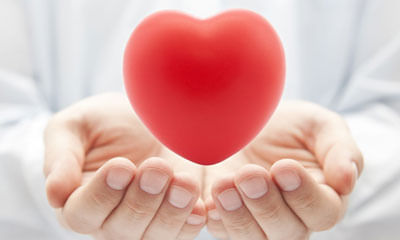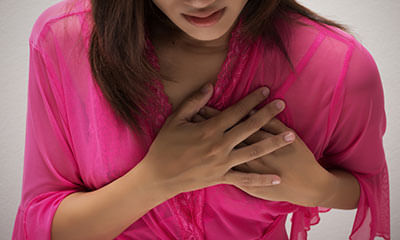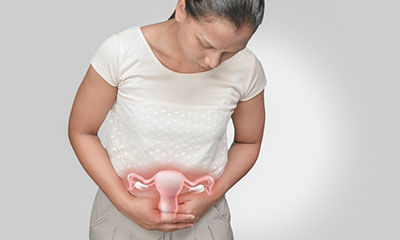Medicine For Supraventricular Tachycardia
I am 19 years old female taking calcium channel blockers daily I am having psvt attack like on every other day. I never ...
Ask Free Question
I am sorry to hear about your concern but will be happy to assist you. Svt occurs when the electrical signals that coordinate your heartbeats don't work properly. For some people, a supraventricular tachycardia episode is related to an obvious trigger, such as exercise, stress or lack of sleep let's connect over a call so that we can discuss your concern in details and make a suitable treatment plan for you.
In 2016 I went for radio ablation for supraventricular tachycardia. Now after 4 years I am feeling little giddiness and ...
Ask Free Question
Stop Deriphylline as it can cause Cardiac arrhythmia. PSVT is cured by radioabltion so donât worry about it now
My friend is having problem with her sleep. Her heartbeat becomes fast while sleeping. And sometimes she just want to ju ...
Ask Free Question
Palpitation can be attributed to one of four main causes: Extra-cardiac stimulation of the sympathetic nervous system (inappropriate stimulation of the sympathetic nervous system, particularly the vagus nerve, (which innervates the heart), can be caused by anxiety and stress due to acute or chronic elevations in glucocorticoids and catecholamines. Gastrointestinal distress such as bloating or indigestion, along with muscular imbalances and poor posture, can also irritate the vagus nerve causing palpitations) Sympathetic overdrive (panic disorders, low blood sugar, hypoxia, antihistamines (i.e. levocetirizine), low red blood cell count, heart failure, mitral valve prolapse).[4] Hyperdynamic circulation (valvular incompetence, thyrotoxicosis, hypercapnia, high body temperature, low red blood cell count, pregnancy). Abnormal heart rhythms (ectopic beat, premature atrial contraction, junctional escape beat, premature ventricular contraction, atrial fibrillation, supraventricular tachycardia, ventricular tachycardia, ventricular fibrillation, heart block). Anxiety and stress Anxiety and stress elevate the body's level of cortisol and adrenaline, which in turn can interfere with the normal functioning of the parasympathetic nervous system resulting in overstimulation of the vagus nerve.[5] Vagus nerve induced palpitation is felt as a thud, a hollow fluttery sensation, or a skipped beat, depending on at what point during the heart's normal rhythm the vagus nerve fires. In many cases, the anxiety and panic of experiencing palpitations causes a sufferer to experience further anxiety and increased vagus nerve stimulation. The link between anxiety and palpitation may also explain why many panic attacks involve an impending sense of cardiac arrest. Similarly, physical and mental stress may contribute to the occurrence of palpitation, possibly due to the depletion of certain micronutrients involved in maintaining healthy psychological and physiological function.[6] Gastrointestinal bloating, indigestion and hiccups have also been associated with overstimulation of the vagus nerve causing palpitations, due to branches of the vagus nerve innervating the GI tract, diaphragm, and lungs. FOR MEDICATION CONSULT ONLINE IN PRIVATE
Hi Sir, I am 27 years old male and I do intense exercise 6 days a week and everything is normal except some high bp but ...
Ask Free Question
Ecg is okay. Just get medicine for high pulse and get cardiologist examined once. He will guide you then for it.
Hi Sir, My mothers 58 years old, echo test is normal but ecg is abnormal. The results of ecg: qrs: 54ms qt/qtcbaz: 336/4 ...
Ask Free Question
Sinus tachycardia (also colloquially known as sinus tach or sinus tachy) is an elevated sinus rhythm characterized by an increase in the rate of electrical impulses arising from the sinoatrial node.in adults, sinus tachycardia is defined as a heart rate greater than 100 beats/min (bpm). The normal resting heart rate is 60–100 bpm in an average male adult and 60-90 bpm in an average female adult. The normal ranges for hemoglobin depend on the age and, beginning in adolescence, the gender of the person. The normal ranges are: adult males: 14 to 18 gm/dl adult women: 12 to 16 gm/dl men after middle age: 12.4 to 14.9 gm/dl women after middle age: 11.7 to 13.8 gm/dl. Here rbc represents red blood cells, and the other terms in the report are meant for medical experts hence you should not worry about them. We can discuss it further in detail for your better understanding.
Hello, I am a 29 year old female. I take glycomet and glador 1 for diabetes, thyronorm 125 for thyroid, yasmin for pcod ...
Ask Free Question
Hello, thanks for the query. I have seen the details given and understand your concern. Low hemoglobin is unlikely to occur because drugs being taken. It is mostly related to loss of blood during menstruation and improper nutrition. With tsh at 9.02 mu/l, your hypothyroidism is not in control. Ideally tsh should be between 3 to 4 mu/l, when all the symptoms are in check. You have mentioned that" my sugar level is in check" but no actual numbers are given, so difficult to comment. For controlling anemia or improving hemoglobin, there is a need to take appropriate iron, folic acid and b12 combination for over 6 months. If hemoglobing goes further down then you may need infusion of packed cells (rbcs). There are no details of weight and height also. Thanks.
Hello doctor my heart rate is between 95 to 113 is this ok or shall I take some medicine? ...
Ask Free Question
Heart rate should be within 60 to 90 beats per minute. You can take tb Abana (himalaya) 2 tb twice a day empty stomach.
I have developed tachycardia when I'm moving around, walking heart rate goes from 70 resting to 120-130 around house. Sh ...
Ask Free Question
You can take homoeopathic medicine Digi offici 30 single dose to get relieved of your trouble. Or you can consult online to get an expert treatment.
My mom heart beat increase upto 192 after 1 month oe even after 1 year. Heart beat running for 12 hour or kabhi kabhi on ...
Ask Free Question
Your mom has ectopic heartbeats and if all tests are normal he needs medicines to slow down the heart rates.
Have a problem after one day I don't know what is it but doctors said it is just depression but after one day when I don ...
Ask Free Question
Dear Rajat, In depressive disorders, such panic attacks are common. Since your echo doppler is normal, you need treatment for panic and depression. They can be treated with antidepressant tablets for 5-6 months, anxiolytic tablets for 2-3 weeks and therapy. Your doctor told you correctly, it is depression. He will put you on treatment. It may take 3-6 weeks for you to observe improvement.




